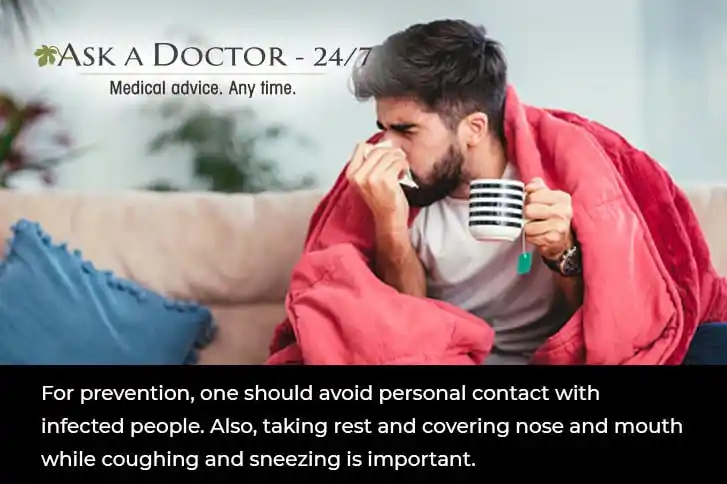Key Facts About Coronavirus And Precautions To Prevent It!
The human coronaviruses, also called nCoV, are common infection-causing viruses. They're a large family of viruses with some causing less severe diseases such as cold, while others cause more severe conditions like severe acute respiratory syndrome (SARS).
The newly-identified viruses originated in the Chinese city of Wuhan, has recently also spread to the US, Thailand, Japan, South Korea and Taiwan. In most of the countries of the world, these viruses are still not known to people. However, with each passing day, the number of people infected by these viruses is constantly rising. Six coronavirus strains can infect humans, of which the most well-known are 229E, NL63, OC43, and HKU1, which cause mild to moderate upper-respiratory tract illnesses. These illnesses do not last long. You may get infected with these at some point in your life.
How did coronavirus spread?

Last year, at the end of December, it was found that an unknown, new virus which was causing pneumonia-like illness in the city of Wuhan. It was quickly determined as a coronavirus. As of Jan. 23, 2020, there are more than 500 confirmed cases and 17 deaths in China linked to it. This current outbreak is believed to be linked to consumption of seafood sourced from a market in Wuhan. Also, it had spread to the US when a traveller flew from China to Seattle. The Centers for Disease Control and Prevention (CDC) had identified the virus from the traveler in the state of Washington after subjecting him to laboratory tests. All the cases identified in the above countries traveled from Wuhan.
Coronaviruses can even spread from animals to humans and causes severe symptoms in humans. This is what happened with the Middle East Respiratory Syndrome Coronavirus (MERS- CoV) and Severe Acute Respiratory Syndrome Coronavirus (SARS-CoV), the viruses that cause more severe symptoms than other coronaviruses.
Coronaviruses can even spread from animals to humans and causes severe symptoms in humans. This is what happened with the Middle East Respiratory Syndrome Coronavirus (MERS- CoV) and Severe Acute Respiratory Syndrome Coronavirus (SARS-CoV), the viruses that cause more severe symptoms than other coronaviruses.
What are the symptoms of coronavirus?

Most people will get infected with at least one coronavirus during their lifetimes. The symptoms to watch out for include -
Illnesses such as pneumonia or bronchitis are more common in infants, older adults and people with cardiopulmonary disease and weakened immune systems. If you've any doubts related to your specific influenza symptoms, you can also consult an online doctor to evade out the doubts.
- Running nose
- Cold and cough
- Headache
- Sore throat
- Fever
Illnesses such as pneumonia or bronchitis are more common in infants, older adults and people with cardiopulmonary disease and weakened immune systems. If you've any doubts related to your specific influenza symptoms, you can also consult an online doctor to evade out the doubts.
How does coronavirus get transmitted?

Coronaviruses get easily transmitted from an infected person to others through:
- Personal contact - This includes touching or shaking hands with the infected person
- Airborne - Sneezing and coughing without covering the mouth
- Material contact - Touching a surface or an object that has the virus and then touching your nose, eyes or mouth
- Fecal communication - The coronavirus although rarely gets transmitted through fecal communication.
Prevention of coronavirus infection

Currently, there are no vaccines available for protection against coronavirus infection. However, you can significantly reduce your risk of infection by:
In case you get infected, you can get relief by taking painkillers and fever medications, drinking water and taking rest. If you’re concerned about your symptoms, you can also consult an online Internal Medicine Specialist.
- Avoiding close contact with anyone you think is infected
- Staying home when you fell ill
- Covering you nose and mouth properly while coughing and sneezing
- Using disinfectants and keeping objects and surfaces around you clean
In case you get infected, you can get relief by taking painkillers and fever medications, drinking water and taking rest. If you’re concerned about your symptoms, you can also consult an online Internal Medicine Specialist.
Ask a Specialist
Recent Questions


